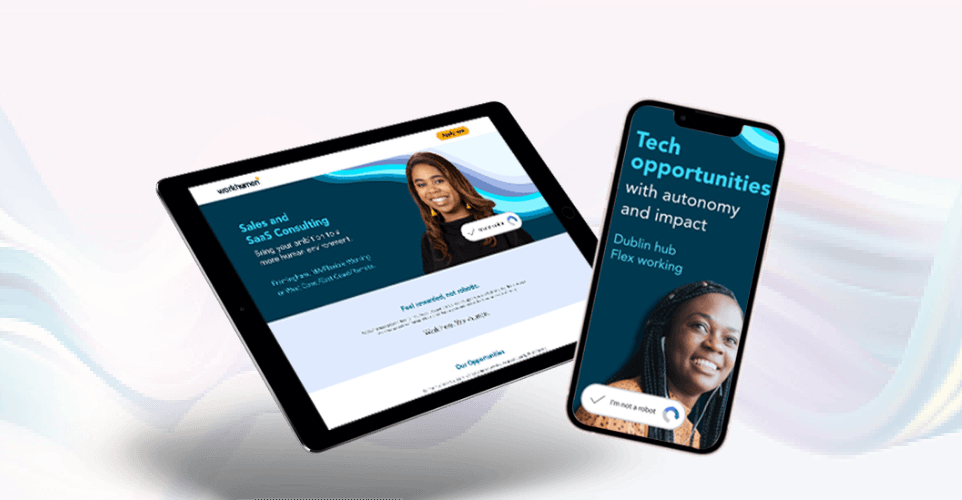This year has been a crazy one and (as we all feared) a return to normal is looking further away than ever. For employers, this year has been a battle. We’ve had to lead and manage employees through the unexpected and try to prepare for the unknown. However, many businesses have been able to show resilience and adjusted to new ways of working which means that employees of all generations have had to adapt. Now, just as many of us have returned the office and become used to a new normal in our working environments, it looks like we could have to adapt our working days once again.
Managing a multigenerational workforce in times of crisis is a challenge in itself, never mind when policies and guidelines change. During this crisis, employees have had to adjust to remote working and learn new technologies when some may have worked in an office every day and enjoyed face to face conversations for the last 30 years. Workers of all ages and backgrounds have all had to change their routine and embrace new ways of thinking as we collaborate virtually.
As a second wave seems imminent in the UK, employers can use some of the learnings that they picked up during the last spike of coronavirus and use them to improve life for their employees across all generations.
Lead with empathy
As we prepare for the winter months and the heavily anticipated second wave of the coronavirus, empathy must play a huge part of your company culture. As with the first wave, it’s incredibly important to show understanding to employees who may be having a hard time. Having a multigenerational workforce only amplifies the importance of this. For example, older workers may be more vulnerable, and at-risk, parents may have to take time off to look after children should their schools close, and any employee could be struggling with their mental health through the effects of the pandemic. Some employees may be grieving, while others may be having to take on a new role as a carer. All generations will have their own tests and troubles during this time, which is why it’s essential to show empathy to all employees. Ensure that they know who to talk to about their troubles and promote a caring company culture that can benefit all in the future.
Provide materials for all
Remember that employees at different stages of their lives will have other priorities and concerns, which as we prepare to enter a time of further uncertainty, your team will need to address. While some who may have been furloughed previously will be worried about keeping their job through another turbulent period, others may be concerned about how COVID-19 will affect their retirement plans. To ensure a good employee experience throughout this uncertainty, HR and leadership teams should be considering the team as a whole. Whilst during the lockdown, we were all trying to get by day-to-day, the next time around people will be thinking about the long-term effects of the pandemic on their lives. Employers must distribute as much information as possible, update any policies and ensure that any changes to processes are communicated clearly to the wider team.
Train in technology
You may assume that your team have all been video calling, using cloud storage and adjusting to technologies well; if your team is likely to be working remotely for the foreseeable, it may be a good time to check on everyone’s capabilities. Understandably, millennial workers tend to pick up on new technologies quickly, but other workers may find these things more challenging. Just because you find technology easy to use, doesn’t mean everyone else does. By offering refresher training, you can ensure that every member of your team is on top of their game and can ensure business continuity in all eventualities. It’s also a good time to re-enforce any processes and ensure your team are working smoothly; this will avoid any disruption to work later and will improve your employees’ confidence whilst working remotely.
Reconsider benefits
In times of crisis, employers can be tempted to offer perks and benefits to ensure they retain top talent. However, you should never provide a benefit for the sake of it. In a multigenerational workforce, it’s even more vital that you consider the benefits you offer wisely as you need to find options that will appeal to all and enhance the lives of your entire workforce. There’s no use in providing a perk that only a select number of employees can take advantage of, like a discount at a store aimed at a younger demographic, for example. Right now, businesses need to prioritise unity and ensuring their workforce are all kept happy. Therefore, it’s more critical in a crisis to work on your company culture and ensure happy workers across all generations than it is to give fun, quirky perks.
Offer flexibility where possible
One of the previous challenges with leading a multigenerational workforce was that some employees craved flexibility whilst others were settled with a rigid 9-5 structure. The COVID-19 pandemic has flipped this on its head, and now even older generations have become accustomed to a more flexible approach to working. Some employees may long to be back in the office, while some may enjoy working from their homes most of the time. This is no longer a generational factor; it simply is defined by how employees work, their living situation and personal preference. It’s essential that from now on; employees have options and choices so that they can adapt their working life to suit their needs. While we understand that in some industries, flexibility isn’t always viable, employers must note where it is possible; it’s now essential if they wish to retain and attract top talent.
Remember to prioritise diversity
If your business has to make cuts because of the coronavirus crisis and issues like the end of the furlough scheme in the UK, it may seem like the more comfortable option to let go of either your oldest employees who are nearing retirement or, your youngest least experienced employees. However, it’s important to remember that should you have to make these awful decisions diversity and a multigenerational workforce are often the secrets to innovation and growth. A recent AARP survey of nearly 6,000 global executives from 36 countries found that 83% of global executives recognise that a multigenerational workforce is a key to business success. Having representatives from a range of generations in your workplace offers a range of perspectives, inspires creativity and improves your employer brand as candidates from all walks of life will feel like they belong with you.
Create a unified front
Just because you may be working from homes or because you may all have different concerns, it doesn’t mean your workplace can be divided. Now, as we prepare for yet another challenge, it’s time to unify your workforce across all generations. Remember zoom quizzes at the start of the first national lockdown? While some of us are still recovering from zoom fatigue, it’s not a bad idea to try and reunite your teams in some way. When we aren’t all in the office it’s difficult, and employees are likely to segment into departments or friendship groups of similar ages, so it’s vital that employers find an excuse to unite their teams. It could be as simple as regular business updates or encouraging informal chats between departments, or you could implement some team activities to prioritise wellness. However, you choose to unite the team; it is vital to keep your company culture and employer brand healthy, particularly in a multigenerational workforce.
As we prepare for yet another challenging ride in all industries, a united and diverse workforce will help your business to overcome a variety of obstacles. In a world where tech talent and digitisation are in demand, do not lose sight of the value of a multigenerational workforce. You must make the employee experience exceptional for all employees if you wish to retain your top players and ensure your business can go from strength to strength.
If you need any help strengthening your employee value proposition and employer brand to resonate with a multigenerational workforce, then get in touch to start your conversation.








